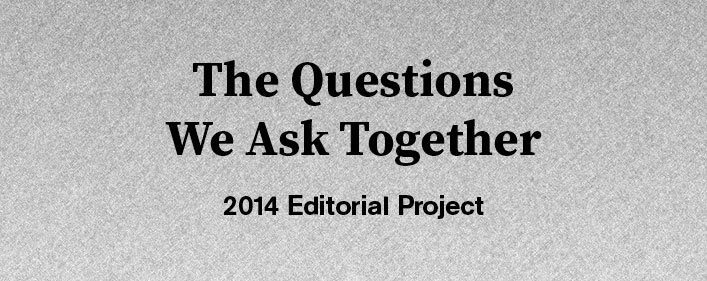How are we addressing our own power?
In posts by Deborah Fisher, W. Keith Brown, Brett Cook and others, “our own power” takes many forms: power as agency, power as hubris, discursive power, privilege. Many of us engaged in this conversation wrestle with the dilemma of how much to embrace our own power and how much to reject it because of the problems that the (unequal) ownership of power creates.
Rather than addressing my own privilege, I would rather turn my energy toward disrupting the political, economic, educational, and cultural systems that create privilege and regulate power, many of which are antiquated and some of which are morally corrupt.
How do I do that in my work? Through questioning (assumptions, systems, myself); through listening closely for prophetic voices; through teaching and challenging my own pedagogy; by learning other languages and assuming that when others speak, what I do not understand is my own deficiency; through believing in and seeking out the power that exists in unexpected places; by building alliances; by allowing myself to fall in love.
Many of us got into this field as a way to value difference and to resist dominant cultural and political structures through strategies of our own design. The territory between subverting our own power and using it, between agency and privilege, is an ethical minefield, gloriously murky, more complicated than any one question or category or label permits. Its danger is its power.
This territory is preceded by political and aesthetic movements around the world where citizens needed to be creative to survive. They needed new methods to threaten corrupt authorities. So Gandhi staged spectacular public burnings of British-made textiles and quietly spun his own yarn, and Boal devised ways to encourage citizenship and change laws through theater. Creativity was part of politics. What does it mean that these labels “socially engaged art” or “social practice” are really only used to describe art and social projects in the United States or from an American perspective? Do we Americans crave a container for these ideas because they are too risky for our cultural and political landscape?
Despite the recent and repeated desire to circumscribe it, I think this territory is most fruitful when it remains unnamed and undefined and malleable. I agree with Grant Kester; I don’t know why people want to make this kind of work seem clean and tidy and name it as an “art movement.” To do so reinforces the very power dynamics that many projects have sought to dismantle, critique, or challenge. Plus, when it is good, it is not clean at all. When it is good, we are all implicated.
About the contributor: Eric Gottesman is a photographic artist, teacher and organizer. His first book, Sudden Flowers, based on a fifteen-year collaborative project in one neighborhood in Addis Ababa, Ethiopia, will be released in July 2014. He has taught in art schools, university art departments and in collaborative workshops in several countries. EricGottesman.net
